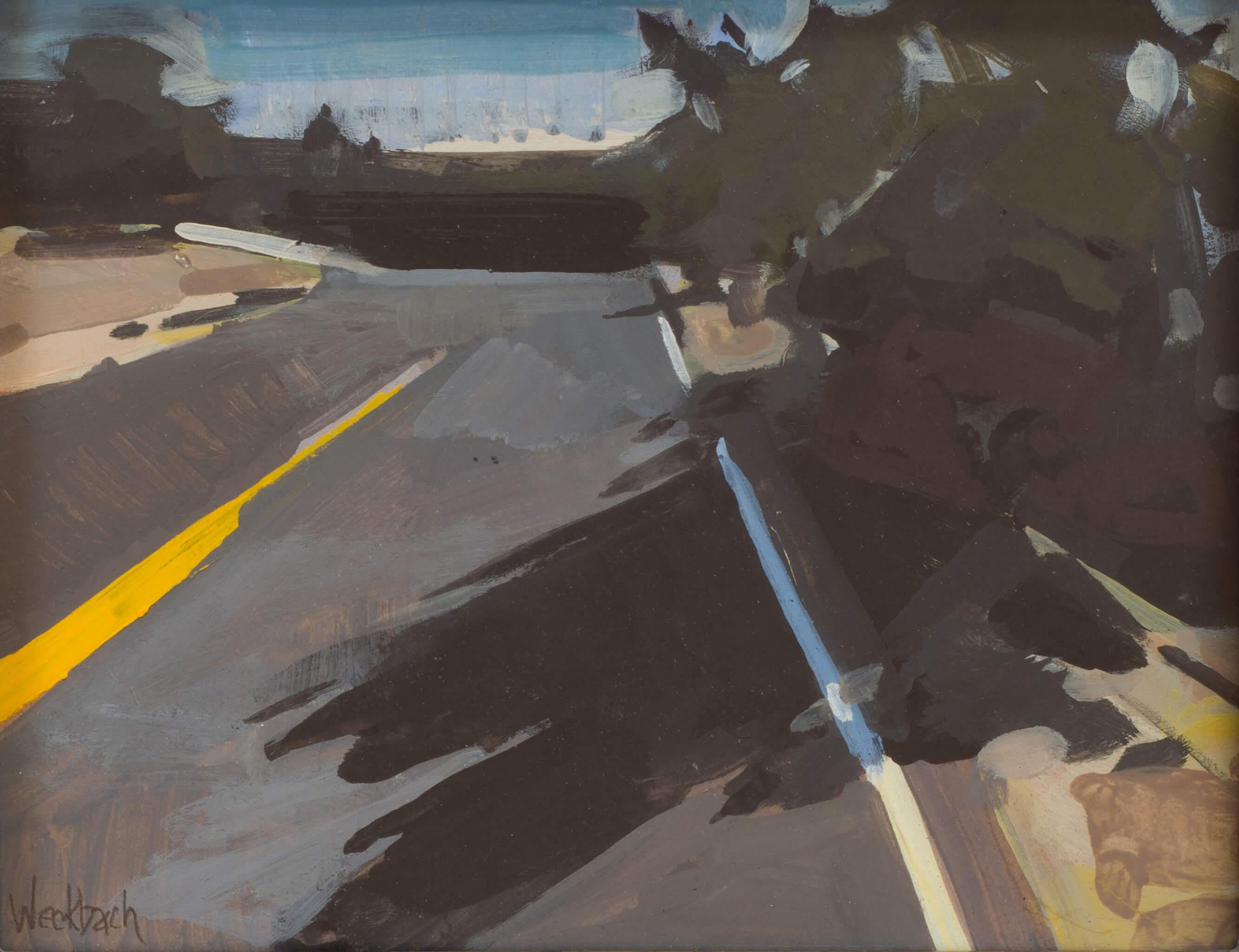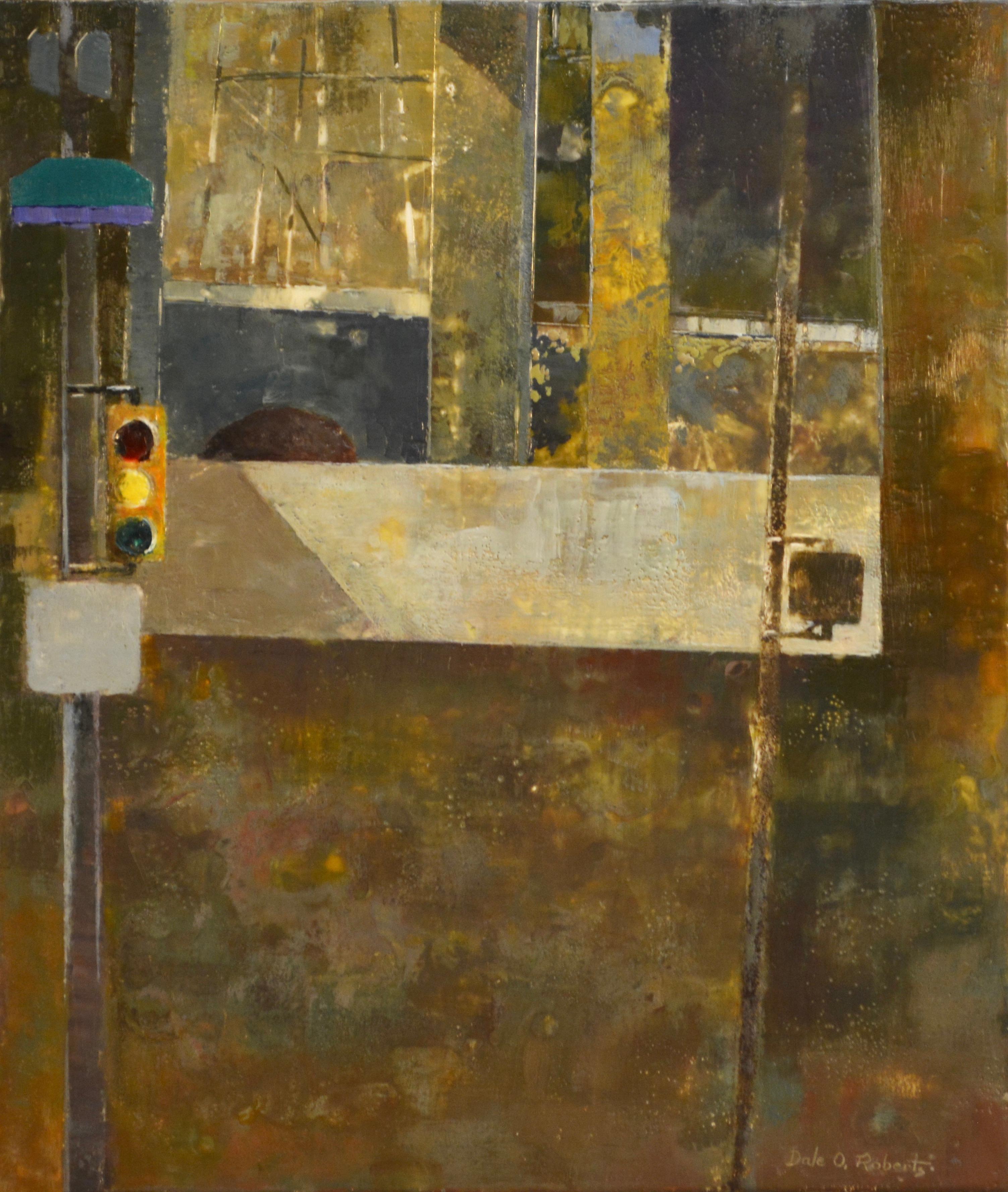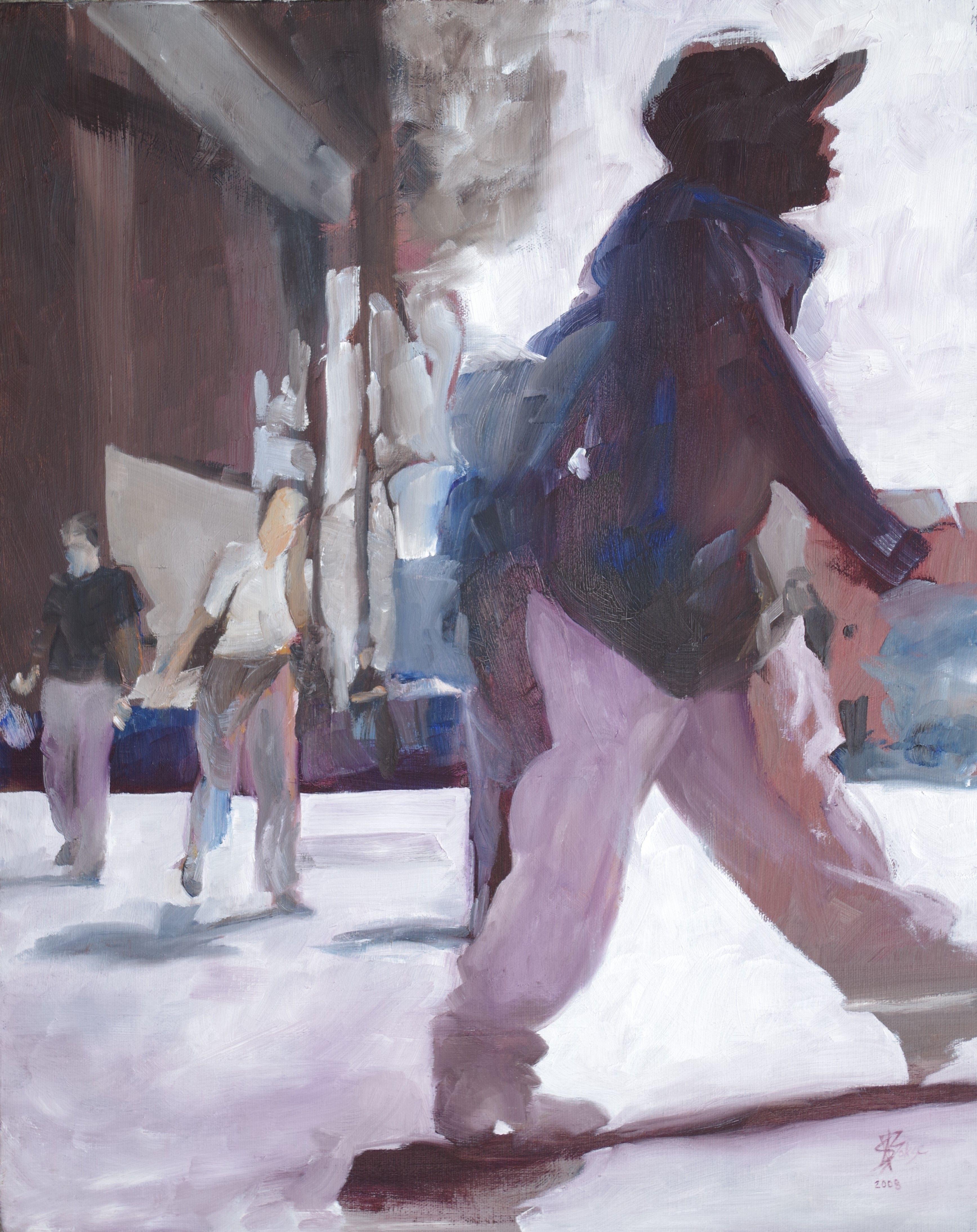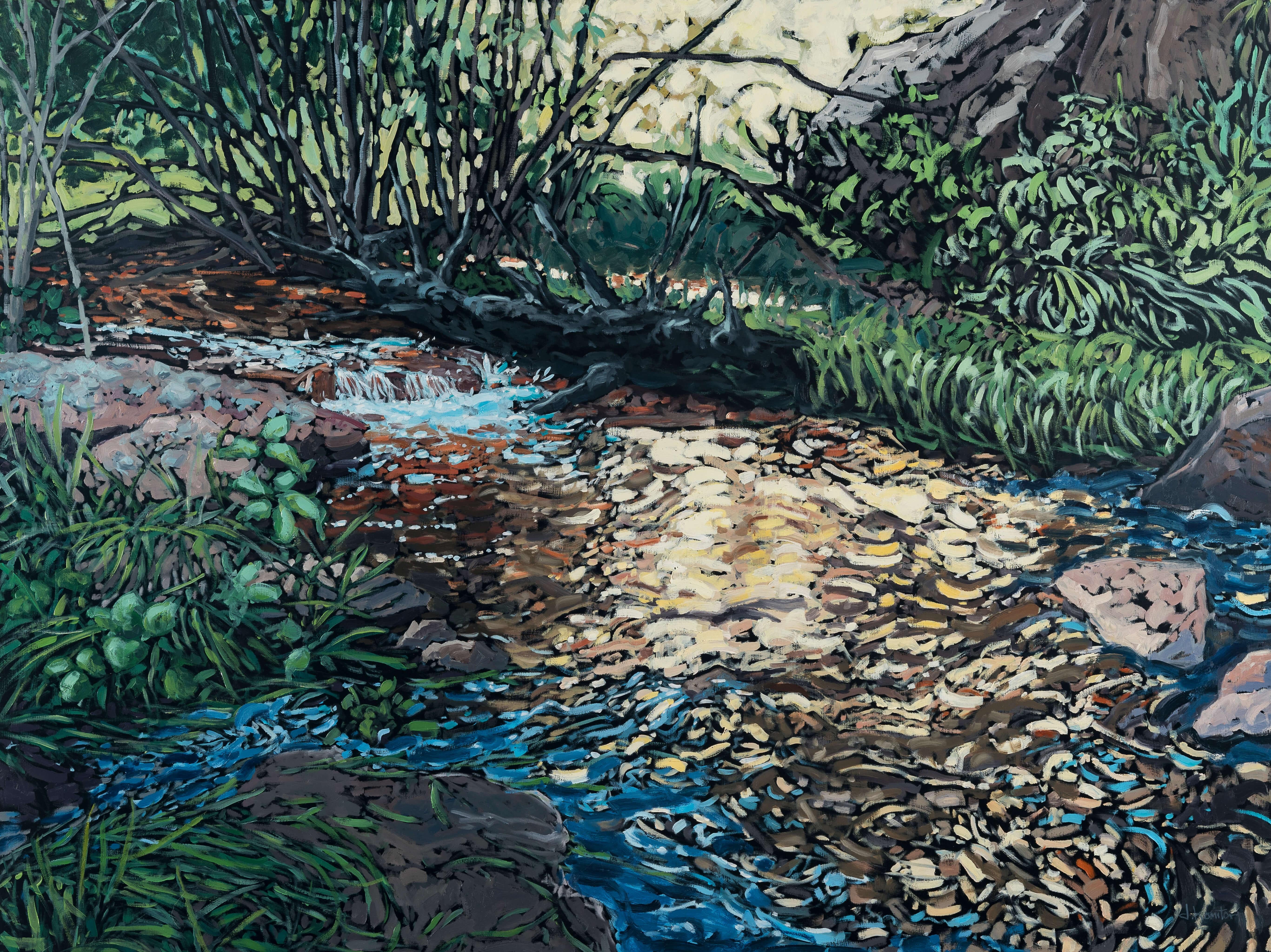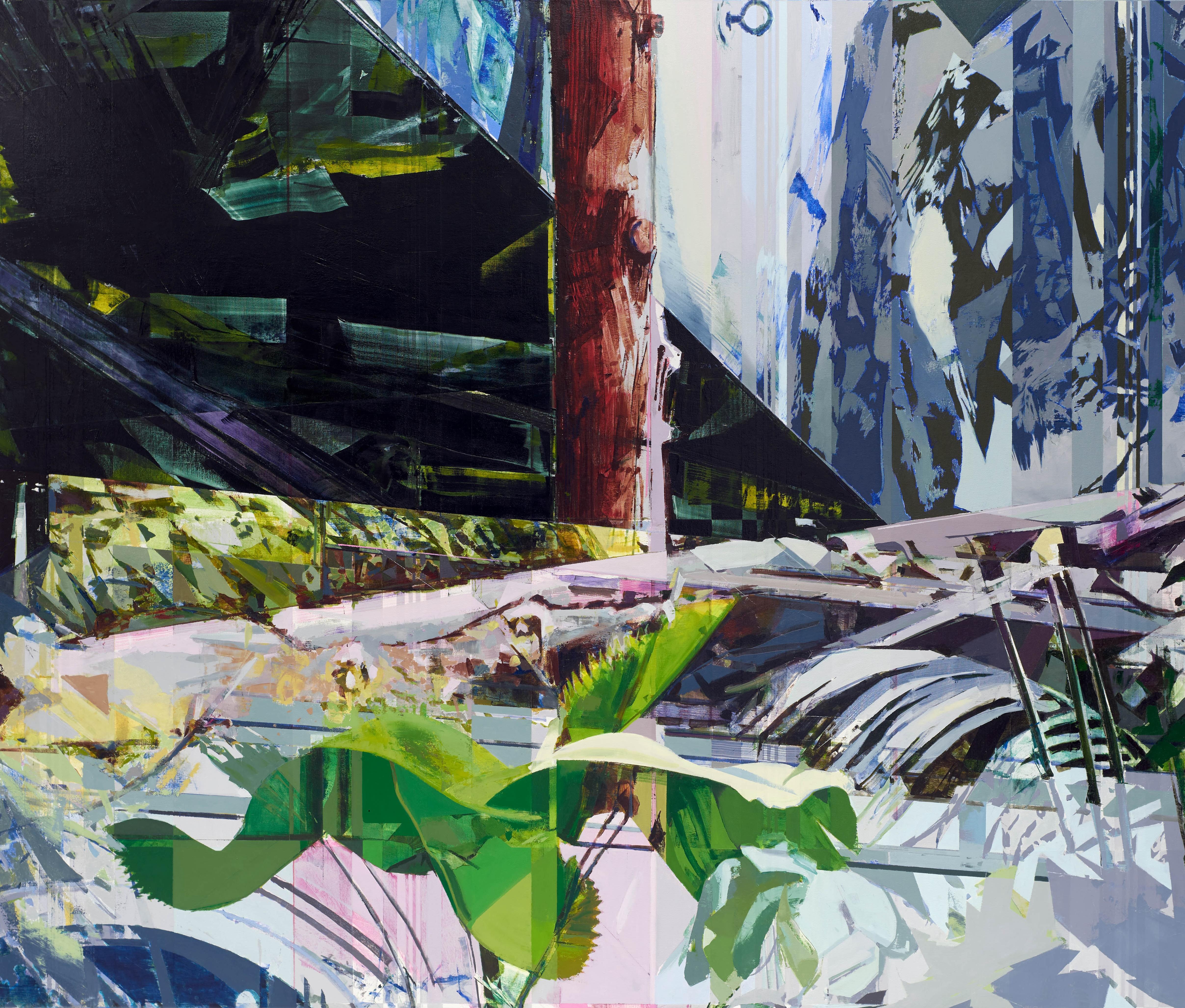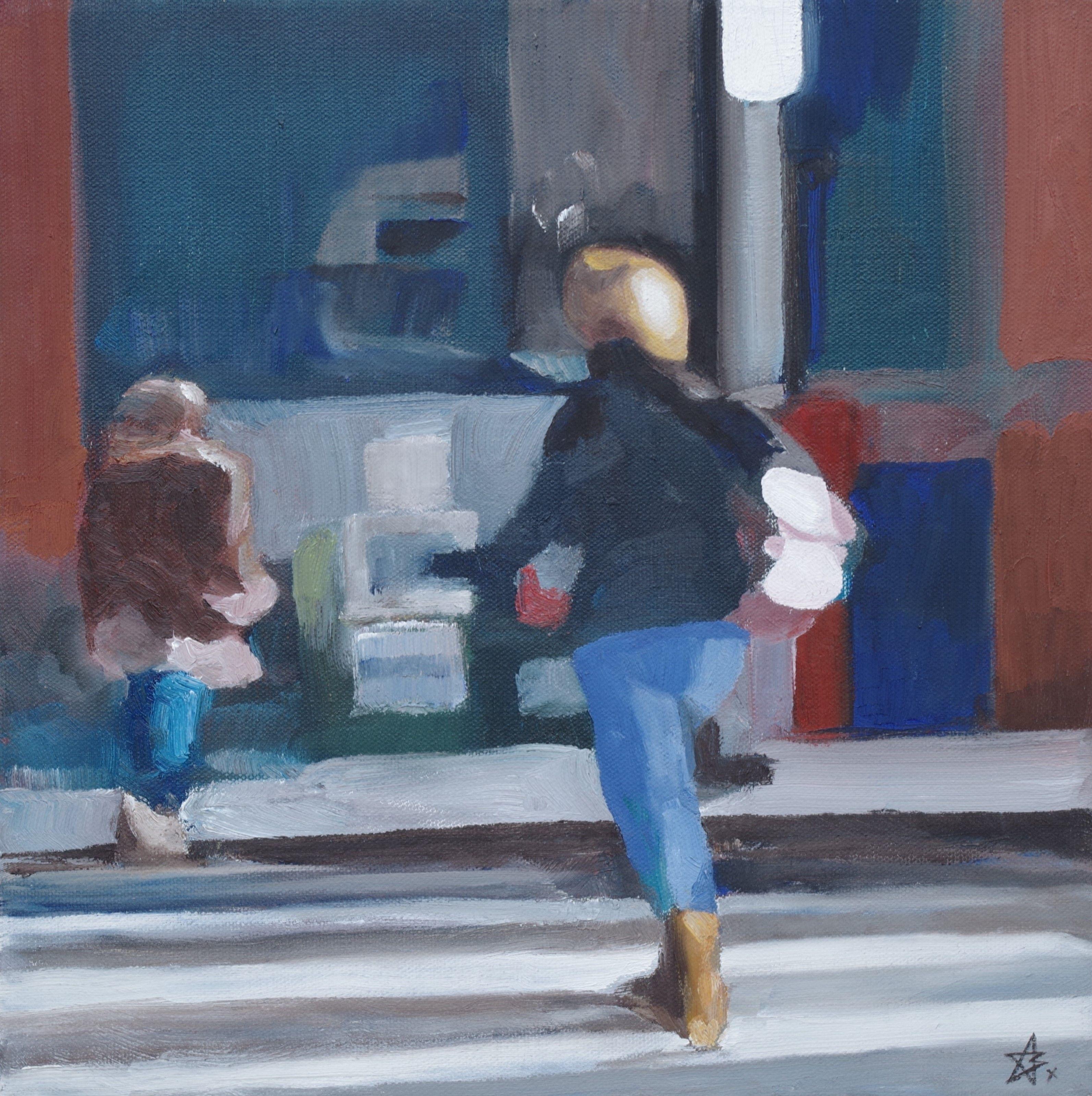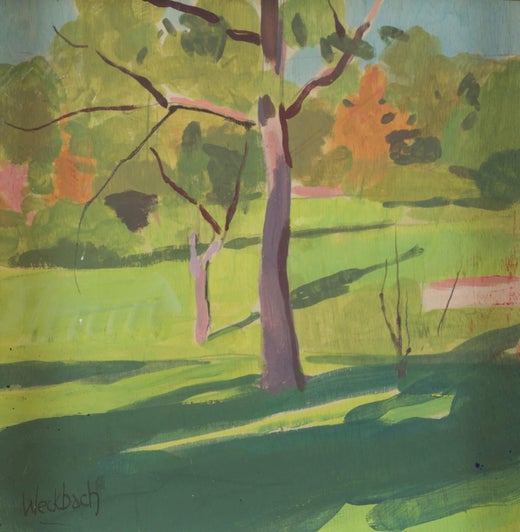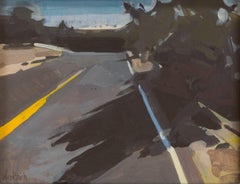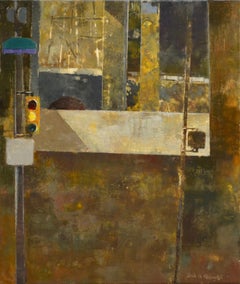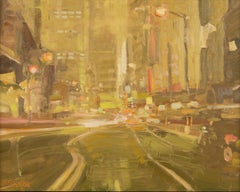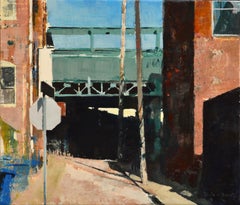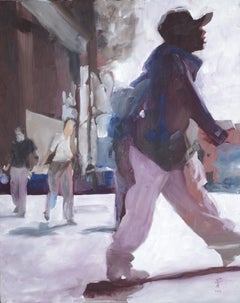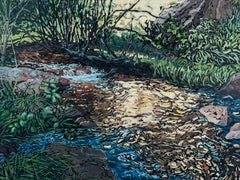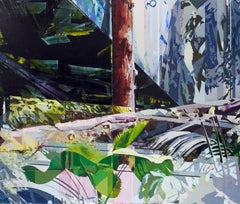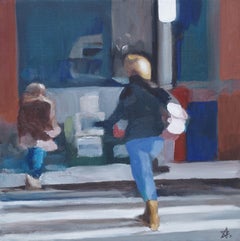Items Similar to "Light Pattern Dance", Encaustic Painting
Want more images or videos?
Request additional images or videos from the seller
1 of 6
Hazel Z Weckbach"Light Pattern Dance", Encaustic Painting2022
2022
$1,300
£996.61
€1,140.41
CA$1,837.19
A$1,996.96
CHF 1,069
MX$24,138.57
NOK 13,471.52
SEK 12,424.24
DKK 8,517.02
About the Item
Kevin Weckbach's (US based) "Light Pattern Dance" is an original, hand made oil painting that depicts a busy city sidewalk where passerby walk along the city avenue lined with towering buildings of a bustling neon metropolis.
Artist Statement:
"Subject matter to me is a vehicle for me to explore how I observe life. My urban influences are an assembly of varied fabrics stitched together to form a tapestry. It is not to resemble a literal story of what it is; moreover, it is a quilt that explains my visual expression. What I find particularly interesting in human intervention in nature is how we are still intertwined with it. Roads, buildings, and farmlands bend with the natural curves of mountains, hills, and streams. City nights are lit up like lightning bugs with an array of colors and patterns. I want to push the viewer past the humdrum of everyday observation into a world of visual tapestry." -Kevin Weckbach
- Creator:Hazel Z Weckbach (1970)
- Creation Year:2022
- Dimensions:Height: 11 in (27.94 cm)Width: 14 in (35.56 cm)
- Medium:
- Movement & Style:
- Period:
- Condition:
- Gallery Location:Denver, CO
- Reference Number:1stDibs: LU1307213900242
Hazel Z Weckbach
Hazel Z Weckbach was born in Denver, Colorado, in 1970. They studied illustration at the Rocky Mountain College of Art and Design from 1990–92 and studied under the artist Quang Ho at the Art Students League of Denver from 1992–96. They is represented in galleries from Wellfleet, Massachusetts to Texas. They balances his career as a painter with illustration. Weckbach recently illustrated a new edition of Emily Bronte's Wuthering Heights for Micawber Fine Editions in Boulder.
About the Seller
5.0
Platinum Seller
Premium sellers with a 4.7+ rating and 24-hour response times
Established in 2004
1stDibs seller since 2019
147 sales on 1stDibs
Typical response time: 5 hours
- ShippingRetrieving quote...Shipping from: Denver, CO
- Return Policy
More From This Seller
View All"Long Run" (2022), Original Impressionist American Cityscape Encaustic Painting
By Hazel Z Weckbach
Located in Denver, CO
Hazel Z Weckbach's (US based) "Long Run" is an original, hand-made oil painting that depicts a snow-laden forest clearing in early winter.
Artist Statement:
"Subject matter to me is...
Category
2010s American Impressionist Landscape Paintings
Materials
Encaustic
"Waiting" Encaustic painting
Located in Denver, CO
Dale O Roberts' "Waiting" is an original, hand made encaustic painting that depicts a yellow stoplight with an abstracted background.
About the artist:
Born 1959 in Waterville NY, ...
Category
2010s American Impressionist Landscape Paintings
Materials
Encaustic
"Sublimation" Original Expressionist Downtown Cityscape, Still-Life Oil Painting
By Jim Beckner
Located in Denver, CO
"Sublimation" is a handmade expressionist oil painting, depicting a vast, bustling, and colorful cityscape, with light trails of cars and the glow of restaurants creating a glow acro...
Category
2010s Expressionist Figurative Paintings
Materials
Canvas, Oil
"Green Between" Encaustic painting
Located in Denver, CO
Dale O Roberts' "Green Between" is an original, hand made encaustic painting that depicts a metal overpass bridge creating deep shadows.
About the artist:
Born 1959 in Waterville NY...
Category
2010s American Impressionist Landscape Paintings
Materials
Encaustic
"Elegant Appendages" Encaustic painting
Located in Denver, CO
Dale O Roberts' "Elegant Appendages" is an original, hand made encaustic painting that depicts a tree in winter with an abstracted background.
About the artist:
Born 1959 in Waterv...
Category
2010s American Impressionist Landscape Paintings
Materials
Encaustic
Sparks on 3rd, Oil Painting
By David Cheifetz
Located in Denver, CO
David Cheifetz's "Sparks on 3rd" is an oil painting featuring a dramatic city skyline.
About the artist:
David is an internationally acclaimed and collected ar...
Category
2010s Realist Landscape Paintings
Materials
Oil
You May Also Like
Passing through the Quad, Painting, Oil on Canvas
By Steven Boksenbaum
Located in Yardley, PA
The quad on the campus of the University of Pittsburgh. Oil on cotton canvas over pine stretchers. Ready to hang or be framed by the buyer. ::...
Category
Early 2000s Contemporary Paintings
Materials
Oil
"The Rhythm of Light" (2022) by Deb Komitor, Original Oil Painting
By Deb Komitor
Located in Denver, CO
"The Rhythm of Light" by Deb Komitor (United States) is a handmade landscape oil painting that is ready to hang. The painting is continued on the cradled edges and is ready to hang. ...
Category
21st Century and Contemporary Realist Figurative Paintings
Materials
Oil, Board
"Light First Went Forth" -- Oil Painting by Jered Sprecher
By Jered Sprecher
Located in New Orleans, LA
JERED SPRECHER is an artist who makes paintings, drawings, and installations that abstract the landscape to explore the precarious relationship between nature and technology. His wor...
Category
21st Century and Contemporary Contemporary Figurative Paintings
Materials
Canvas, Oil
Figure in Crosswalk, Painting, Oil on Canvas
By Steven Boksenbaum
Located in Yardley, PA
This picture is about the movement of people through the city and the reflections and patterns of the street and its accoutrements. Oil on cotton canvas stretched over pine wood bar...
Category
2010s Contemporary Paintings
Materials
Oil
"Bright Lights, " Urban Night Scene by Jim Beckner
By Jim Beckner
Located in Denver, CO
Jim Beckner's (US based) "Bright Lights" is an original, handmade oil painting depicting pedestrians strolling down a brightly lit city street at night.
About the Artist:
(Born 19...
Category
2010s Impressionist Figurative Paintings
Materials
Oil, Board
Crosswalk, Painting, Oil on Canvas
By Steven Boksenbaum
Located in Yardley, PA
A crowded intersection on a cool day in Pittsburgh, as the light turned green. The resolution of the figures and the activity of city life remind me of the regionalist painters of th...
Category
2010s Contemporary Figurative Paintings
Materials
Oil
More Ways To Browse
Hazel Brown
Lightning Bug
The Old Mill
Abbey Painting
Almond Tree
American Painting 1940s
Boats On The Beach
Classical Landscape Oil Painting
Female Landscape Artist
Impressionist Scottish Landscapes
Landscape Oil Painting Children
Mission Painting
Orchard Painting
Red Roof Painting
Rowing Art
Thames Oil Painting
20th Century Irish Artists
Alpine Landscape Painting
